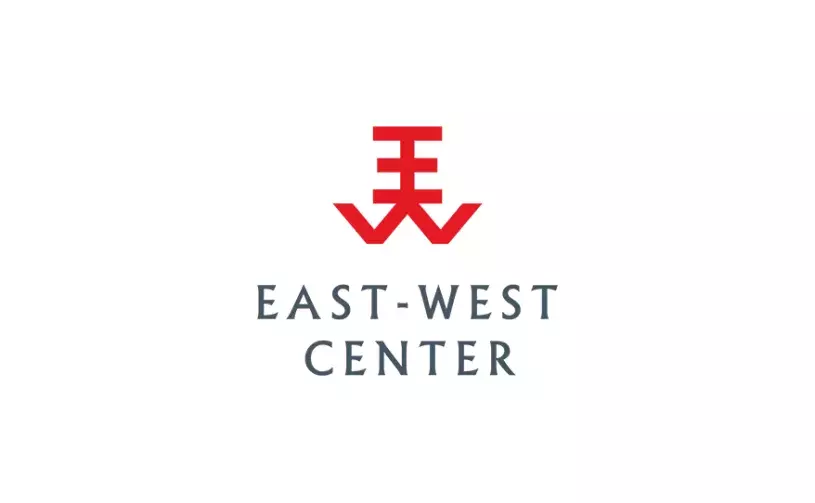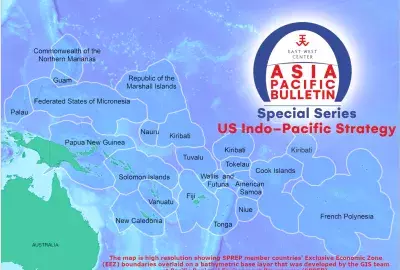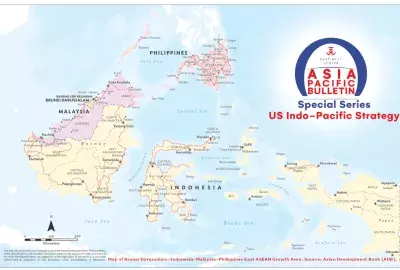Error message

|
Chiew-Ping Hoo, Senior Lecturer, Strategic Studies and International Relations, at the National University of Malaysia, explains that “The relationship was solidified through mutual recognition of the necessity of maintaining peace and stability and diffusing tensions arising from the East-West confrontation.” |
In the late 1960s, North Korea began to reach out to Malaysia to establish diplomatic ties amidst its Cold War-era charm-offensive toward the developing world. The first official visit by representatives of the Democratic People’s Republic of Korea (DPRK) to Malaysia was a trade delegation led by then External Trade Minister Bak Su Kwon in 1971 to Perbadanan Nasional Berhad (then PERNAS, now PNS) Malaysia’s largest state-owned enterprise (SOE). Subsequently, DPRK’s overseas diplomatic representatives actively sought out Malaysian counterparts (in Cairo, Paris, Belgrade, Jakarta, and Singapore) to convey North Korean government’s wish to establish official ties in early 1973. The DPRK representative in Singapore proposed to his Malaysian counterpart to send a ping pong delegation to Malaysia. The head of the delegation was Mr. Jo Myong Hwang, Vice Director of the Asia Department at the DPRK Ministry of Foreign Affairs, who requested a call to Wisma Putra (Ministry of Foreign Affairs) during the trip in March 1973 and expressed the North Korean government’s intention to establish ties with Malaysia.
Malaysia was at the time undergoing a significant foreign policy reorientation under the administration of the second Prime Minister Abdul Razak. In contrast to his pro-west predecessor Tunku Abdul Rahman, Razak was ideologically more flexible and receptive to socialism, and he assessed the British decision to withdraw from region east of the Suez Canal in 1968, Nixon’s Guam Doctrine in 1969, and US-China rapprochement in the early 1970s, as likely to have significant impacts on Southeast Asia’s geostrategic landscape. He thus saw “opening” to the communist world as a strategic necessity. Razak henceforth pursued a more neutrality-based foreign policy. On the heels of recognizing the Soviet Union, East Germany, and North Vietnam, Tun Razak’s administration carefully assessed of the Korean Peninsula situation and set up a research team to study North Korea. A swift decision was made to recognize DPRK diplomatically. An internal policy memo revealed that Malaysia considered “hedging” as a preferred policy option in dealing with both Koreas — where the principle of neutrality could be upheld, while the potential for Malaysia to play a mediating role between the two Koreas increased. Although the Republic of Korea (ROK) was unhappy with the decision, it could do nothing as Malaysia and DPRK established official diplomatic ties on June 30, 1973. North Korea became the fourth Communist country that Malaysia recognized, and they did so even before China (1974).
The relationship was solidified through mutual recognition of the necessity of maintaining peace and stability and diffusing tensions arising from the East-West confrontation. The DPRK’s successful admission into the non-aligned movement (NAM) was due to the agreements reached with numerous NAM members who upheld neutrality principles, including Malaysia (Razak and and his deputy Hussein Onn expressed appreciation for Kim Il Sung’s intention to join NAM in March 1975). In addition, Malaysia supported DPRK’s membership in various international organizations, especially under the United Nations agencies. In some circumstances, DPRK’s membership was supported, while ROK’s application was not, even though ROK had established diplomatic ties with Malaysia in 1960. Pyongyang’s hosting of the “Symposium on Non-aligned and other developing countries on increasing food and agricultural production” in 1981 was the hallmark of North Korea’s success in pursuing its non-alignment diplomacy.
While neutrality-based adjustments to the changing geo-strategic landscape were the main strategic consideration in Malaysia establishing ties with DPRK, as relations proceeded, Malaysia also began to explore pragmatic opportunities for trade and cooperation. This was especially the case under the pro-business Fourth (and current) Prime Minister Mahathir Mohamad. In 1979 as Deputy Prime Minister and Minister of Trade, he signed the first trade agreement with DPRK, importing mainly DPRK machinery while exporting rubber and other agriculture commodities.
Trade continued to develop. One notable export of North Korea has been its artwork, especially those from the Mansudae Art Studio’s artists. From the realistic animal statues in the National Zoo (Zoo Negara) to the 360 degree panorama painting at the Rice Museum (which was commissioned by Mahathir and survived the Asian Financial Crisis to completion) in the northern state of Kedah, to the human sculptures in memorial halls, and even the paintings of Buddhas and Rinpoches (Tibetan Buddhist gurus) in places of worship. Malaysian state agencies and private organizations have over the years commissioned North Korean artists for their high-quality artwork.
North Korea’s great famine, draught, and flood in the 1990s actually served as another catalyst for deepening bilateral relations. Mercy Malaysia, an NGO, responded swiftly to provide much-needed medical relief and food aid. The aid was later converted to barter trade, and other forms of business then developed as well, including tourism, where a private Malaysian tourism agency worked with the DPRK Tourism Board to arrange private and business trips to Pyongyang. The tour activities eventually enabled the visa-waiver arrangement for the two countries, and also the aviation agreement in the early 2000s for Air Koryo to operate direct flights between Kuala Lumpur and Pyongyang.
Hence, from the years since Mahathir first became Prime Minister, which continued under his successors Abdullah Badawi and Najib Abdul Razak, pragmatism and commercial ties were the main considerations. Nevertheless, occasionally Malaysia also played a mediating role to host secret talks for US-DPRK nuclear negotiations throughout the 2000s.
These cultural and trade exchanges continued, notwithstanding the fact that ties with North Korea were often cast in the negative light due to North Korea’s clandestine activities — especially those of breaching sanctions. It was only until the infamous incident of the brazen assassination of Kim Jong Nam, the half-brother of Kim Jong Un, in February 2017, masterminded by DPRK operatives based in its embassy in Kuala Lumpur, that Malaysia, then under Najib’s administration, considered severing ties with DPRK.
However, with the return of Mahathir as Prime Minister, Malaysia may revive ties with North Korea. Mahathir’s instinct is to continue the previous policy of neutrality and pragmatism, but he has to be sensitive to how the international community would perceive such a move. Known for his idiosyncratic decisions that go against conventional or public opinion, it is highly likely that the announcement on the resumption of bilateral ties would be made after a verdict is reached in the murder trial of Kim Jong Nam’s assassination. Malaysia does not want to be the only country in Southeast Asia that severed or lost ties with North Korea. The significance and utility of such a position is that it may offer the two Koreas a channel of communication through a third country, while also remaining part of the ASEAN consensus on dealing with North Korea: mitigating risks via diplomacy and engagement.
|
Chiew-Ping Hoo, Senior Lecturer, Strategic Studies and International Relations, at the National University of Malaysia, explains that “The relationship was solidified through mutual recognition of the necessity of maintaining peace and stability and diffusing tensions arising from the East-West confrontation.” |
In the late 1960s, North Korea began to reach out to Malaysia to establish diplomatic ties amidst its Cold War-era charm-offensive toward the developing world. The first official visit by representatives of the Democratic People’s Republic of Korea (DPRK) to Malaysia was a trade delegation led by then External Trade Minister Bak Su Kwon in 1971 to Perbadanan Nasional Berhad (then PERNAS, now PNS) Malaysia’s largest state-owned enterprise (SOE). Subsequently, DPRK’s overseas diplomatic representatives actively sought out Malaysian counterparts (in Cairo, Paris, Belgrade, Jakarta, and Singapore) to convey North Korean government’s wish to establish official ties in early 1973. The DPRK representative in Singapore proposed to his Malaysian counterpart to send a ping pong delegation to Malaysia. The head of the delegation was Mr. Jo Myong Hwang, Vice Director of the Asia Department at the DPRK Ministry of Foreign Affairs, who requested a call to Wisma Putra (Ministry of Foreign Affairs) during the trip in March 1973 and expressed the North Korean government’s intention to establish ties with Malaysia.
Malaysia was at the time undergoing a significant foreign policy reorientation under the administration of the second Prime Minister Abdul Razak. In contrast to his pro-west predecessor Tunku Abdul Rahman, Razak was ideologically more flexible and receptive to socialism, and he assessed the British decision to withdraw from region east of the Suez Canal in 1968, Nixon’s Guam Doctrine in 1969, and US-China rapprochement in the early 1970s, as likely to have significant impacts on Southeast Asia’s geostrategic landscape. He thus saw “opening” to the communist world as a strategic necessity. Razak henceforth pursued a more neutrality-based foreign policy. On the heels of recognizing the Soviet Union, East Germany, and North Vietnam, Tun Razak’s administration carefully assessed of the Korean Peninsula situation and set up a research team to study North Korea. A swift decision was made to recognize DPRK diplomatically. An internal policy memo revealed that Malaysia considered “hedging” as a preferred policy option in dealing with both Koreas — where the principle of neutrality could be upheld, while the potential for Malaysia to play a mediating role between the two Koreas increased. Although the Republic of Korea (ROK) was unhappy with the decision, it could do nothing as Malaysia and DPRK established official diplomatic ties on June 30, 1973. North Korea became the fourth Communist country that Malaysia recognized, and they did so even before China (1974).
The relationship was solidified through mutual recognition of the necessity of maintaining peace and stability and diffusing tensions arising from the East-West confrontation. The DPRK’s successful admission into the non-aligned movement (NAM) was due to the agreements reached with numerous NAM members who upheld neutrality principles, including Malaysia (Razak and and his deputy Hussein Onn expressed appreciation for Kim Il Sung’s intention to join NAM in March 1975). In addition, Malaysia supported DPRK’s membership in various international organizations, especially under the United Nations agencies. In some circumstances, DPRK’s membership was supported, while ROK’s application was not, even though ROK had established diplomatic ties with Malaysia in 1960. Pyongyang’s hosting of the “Symposium on Non-aligned and other developing countries on increasing food and agricultural production” in 1981 was the hallmark of North Korea’s success in pursuing its non-alignment diplomacy.
While neutrality-based adjustments to the changing geo-strategic landscape were the main strategic consideration in Malaysia establishing ties with DPRK, as relations proceeded, Malaysia also began to explore pragmatic opportunities for trade and cooperation. This was especially the case under the pro-business Fourth (and current) Prime Minister Mahathir Mohamad. In 1979 as Deputy Prime Minister and Minister of Trade, he signed the first trade agreement with DPRK, importing mainly DPRK machinery while exporting rubber and other agriculture commodities.
Trade continued to develop. One notable export of North Korea has been its artwork, especially those from the Mansudae Art Studio’s artists. From the realistic animal statues in the National Zoo (Zoo Negara) to the 360 degree panorama painting at the Rice Museum (which was commissioned by Mahathir and survived the Asian Financial Crisis to completion) in the northern state of Kedah, to the human sculptures in memorial halls, and even the paintings of Buddhas and Rinpoches (Tibetan Buddhist gurus) in places of worship. Malaysian state agencies and private organizations have over the years commissioned North Korean artists for their high-quality artwork.
North Korea’s great famine, draught, and flood in the 1990s actually served as another catalyst for deepening bilateral relations. Mercy Malaysia, an NGO, responded swiftly to provide much-needed medical relief and food aid. The aid was later converted to barter trade, and other forms of business then developed as well, including tourism, where a private Malaysian tourism agency worked with the DPRK Tourism Board to arrange private and business trips to Pyongyang. The tour activities eventually enabled the visa-waiver arrangement for the two countries, and also the aviation agreement in the early 2000s for Air Koryo to operate direct flights between Kuala Lumpur and Pyongyang.
Hence, from the years since Mahathir first became Prime Minister, which continued under his successors Abdullah Badawi and Najib Abdul Razak, pragmatism and commercial ties were the main considerations. Nevertheless, occasionally Malaysia also played a mediating role to host secret talks for US-DPRK nuclear negotiations throughout the 2000s.
These cultural and trade exchanges continued, notwithstanding the fact that ties with North Korea were often cast in the negative light due to North Korea’s clandestine activities — especially those of breaching sanctions. It was only until the infamous incident of the brazen assassination of Kim Jong Nam, the half-brother of Kim Jong Un, in February 2017, masterminded by DPRK operatives based in its embassy in Kuala Lumpur, that Malaysia, then under Najib’s administration, considered severing ties with DPRK.
However, with the return of Mahathir as Prime Minister, Malaysia may revive ties with North Korea. Mahathir’s instinct is to continue the previous policy of neutrality and pragmatism, but he has to be sensitive to how the international community would perceive such a move. Known for his idiosyncratic decisions that go against conventional or public opinion, it is highly likely that the announcement on the resumption of bilateral ties would be made after a verdict is reached in the murder trial of Kim Jong Nam’s assassination. Malaysia does not want to be the only country in Southeast Asia that severed or lost ties with North Korea. The significance and utility of such a position is that it may offer the two Koreas a channel of communication through a third country, while also remaining part of the ASEAN consensus on dealing with North Korea: mitigating risks via diplomacy and engagement.







